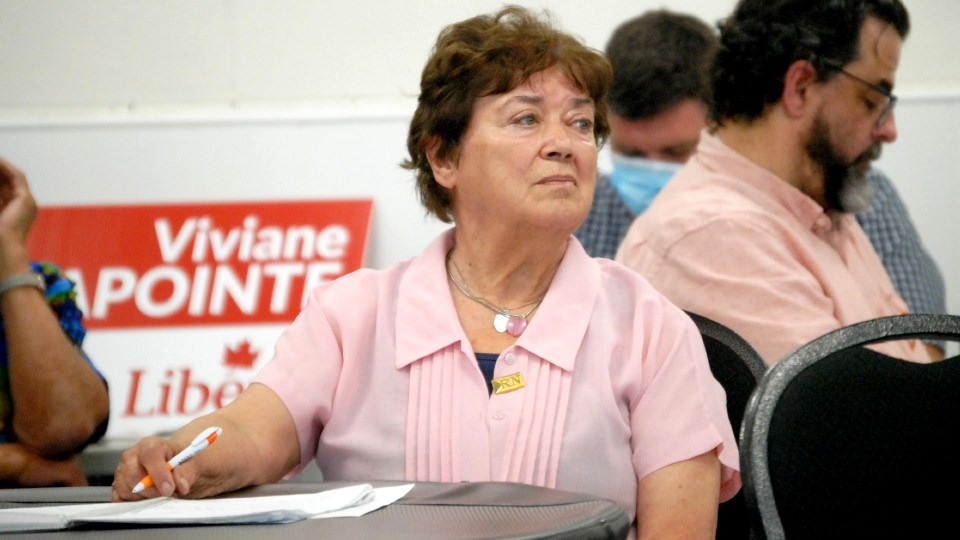Advocating for stronger public services, Dot Klein attended Tuesday’s all-candidates debate at Royal Canadian Legion Branch 76 to see which federal candidates are on board.
Klein has been working as a registered nurse for 57 years and is co-chair of the Sudbury chapter of the Ontario Health Coalition.
Debates associated with public services have been going on for decades, but she said the COVID-19 pandemic has brought the discussion back to the forefront — particularly the issue of making long-term care facilities public.
The pandemic showed that the private system does not work, Klein said following Tuesday’s debate, which was hosted by the local chapter of the Canadian Association of Retired Persons (best known as CARP) and Friendly to Seniors - Sudbury.
“We were short of staff, they weren’t prepared with the protective equipment,” she said, noting the military had to be called out to assist at long-term care facilities, where residents were found malnourished, bed-ridden and abandoned.
The for-profit model doesn’t suit the health-care field, she said, as shareholders’ need for profit always gets in the way.
During Tuesday’s debate, NDP candidates Nadia Verrelli (Sudbury) and Andréane Chénier (Nickel Belt) joined Green party candidate Craig Gravelle (Nickel Belt) in supporting the idea of turning private long-term care facilities public.
Chénier said her party’s plan is to remove profit from health care, and Verrelli said they will also work with seniors and caregivers to come up with national standards.
Liberal candidates Marc Serré (Nickel Belt) and Viviane Lapointe (Sudbury) responded by saying they support stronger long-term care standards across the country.
Nickel Belt Conservative candidate Charles Humphrey pointed to his party’s plan to increase the Canada Health Transfer to provinces by six per cent. His colleague in Sudbury, Ian Symington, noted that while there’s a jurisdictional issue with the provinces, public-private partnerships should remain in place as “the funding models are already there, so we need to make what works work.”
These responses showed a “clear line of who was ready to really step up,” Klein said after the debate, noting that her question about whether candidates support universal pharmacare yielded similar results.
Verrelli said the NDP plans to “lead the fight so that all those who require prescription drugs get them,” while Chénier noted the party had already introduced a private member’s bill to that effect, which was shot down due to it lacking the political will of other parties.
Gravelle expressed support for both universal pharmacare and dental care, while the Liberals pointed to progress made toward making pharmaceutical products more affordable.
The Liberals have already started negotiations with pharmaceutical companies to reduce drug costs by $13 billion by 2030, which Lapointe said sets a “strong foundation for the continued work ahead in developing a pharmacare program in Canada.”
Serré pointed to the development of the Canadian Drug Agency, which pools drug purchasing under one big national umbrella, which has improved purchasing power across the country.
The Conservative candidates said universal pharmacare would be too expensive right now.
“Most economists and budgetary officers suggest not getting into very large big-scale programs right now because of the massive debt and the deficits we’re running,” Symington, a family physician, said.
“I personally don’t have drug coverage, and I don’t know if I think the country should be paying for me.”
Humphrey said universal pharmacare is “simply not realistic.”
“While I would love to say that we’re in a position to commit to all sorts of social spending, this is not the reality we’re in right now.”
Tyler Clarke covers city hall and political affairs for Sudbury.com.
